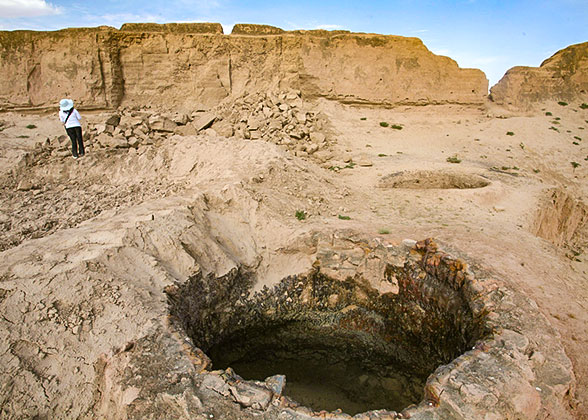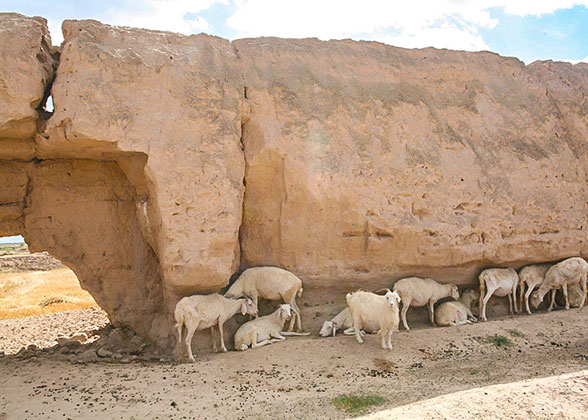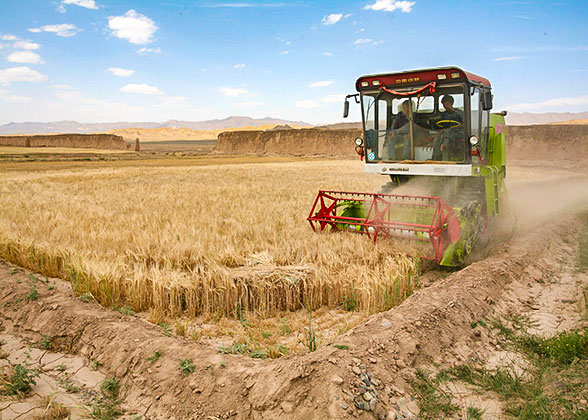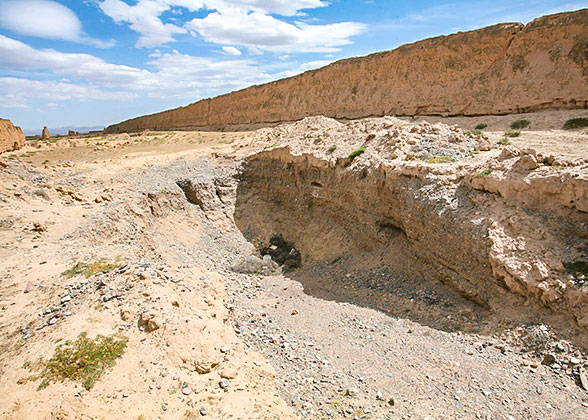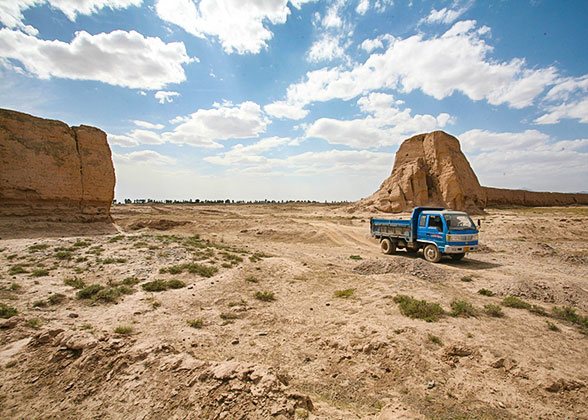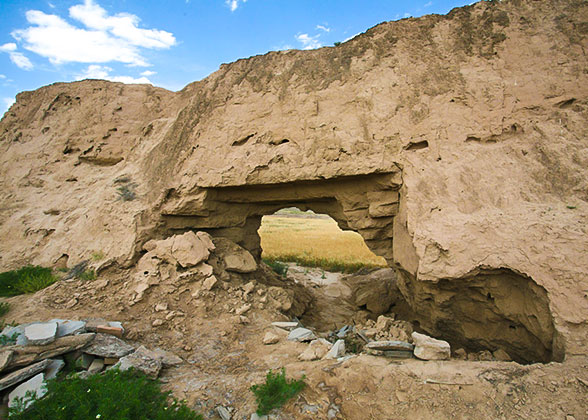Shandan Great Wall in Danger
TCG Survey Group to Great Wall in Shandan County, Gansu Province
Out of concern for the erosion of the Great Wall, TravelChinaGuide (abbr.TCG) sent an observation group in 2002 and most recently in July 2009, we revisited the wall located in Shandan County, Zhangye City, Gansu Province.
The portion of the Great Wall is the most completely preserved portion. Built during the Han (206BC-220) and Ming (1368-1644) dynasties, it is praised as "the Great Wall open air museum". During the Han dynasty, this portion of the wall was built in 111BC and runs about 98.5 km (61.2 miles) from east to west. Though it's been about 2,000 years, the relics of the wall are still recognizable. The portion of the wall built by the Ming Dynasty runs parallel to that built by the Han Dynasty and maintains a distance of 10 to 80 meters (11 to 87 yards).
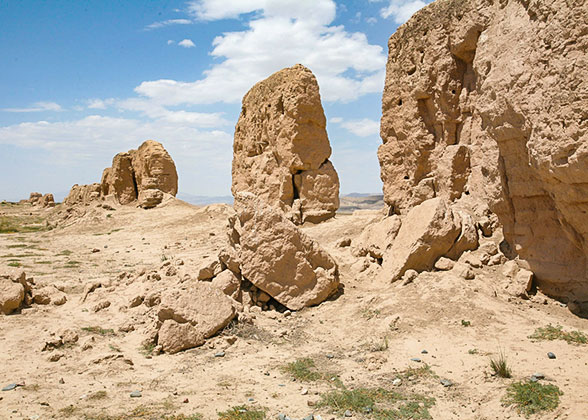 |
| Shandan Great Wall, Gansu |
The members of our group were truly saddened by the bare earth walls that stood before us, especially since some parts were beyond recognition. Compared to the proud sections of Badaling and Mutianyu, the walls here reminded us of a listless dragon. It is a fact that the hostile environment has eroded the wall day by day. But the big holes and the deep marks left by theft indicate that the man-made damage is another factor, and probably a bigger factor to the wall's destruction.
As we were about to leave, we noticed that a flock of sheep had wandered over after grazing in the field near the wall. In this desert-like area, grass grows very sparsely and consequently the sheep were driven to the foot of the wall. They huddled together and continued to nibble on the wall despite a lack of grass. "The sheep are clever. They dig the wall and find grassroots to eat", explained the shepherd.
This is common in Shandan County. The livelihood of the local people depends on raising livestock. But the dry climate in the county does not support sufficient growth of grass to feed the sheep and cows. So the shepherds allow the sheep to freely dig for grassroots in the wall. Even worse, some shepherds dig the holes themselves to accommodate the sheep. To add, the locals are also guilty of taking home the strong bricks on the wall to build houses.
We also found that much of the land near the wall had been developed into farmland. As heavy farming equipment was used, the vibrations occasionally caused the earth on the wall to crumble to the ground. The wall is in definite danger.
We photographed the deteriorating situation of the wall, and sent these pictures to Gansu Provincial Tourism Bureau, Gansu Provincial Bureau of Cultural Relics, Zhangye Municipal Tourism Bureau and Zhangye Municipal Bureau of Cultural Relics, with the hope of drawing attention of the wall's desperate situation. We also believe there are more sections of the wall in danger and we wish more people would realize the importance of protecting its magnificence. TCG remains dedicated to the long-term survival of such a national treasure and will continue to monitor the situation.
|
|
|
|
|
|
Authorities' Feedback to TravelChinaGuide.com
In November, China State Administration of Cultural Heritage also responded to TravelChinaGuide of the same concern. In the letter, TCG was happy to learn that the resource investigation and protection work of Great Wall in Shandan County would be further developed under its direction. At the same time, other works regarding the safety of the wall would also be carried out including formulating the protection plans, conducting the maintenance work, establishing signs as well as taking measures of publicity and education. See the letter from China State Administration of Cultural Heritage.
TravelChinaGuide is relieved to hear the good news and will visit the wall in the future to see the improvement. We believe that the situation of the Great Wall will become better step by step if more people could join us and support the protection work.
- Last updated on Jan. 22, 2024 by Brenda Lian -

